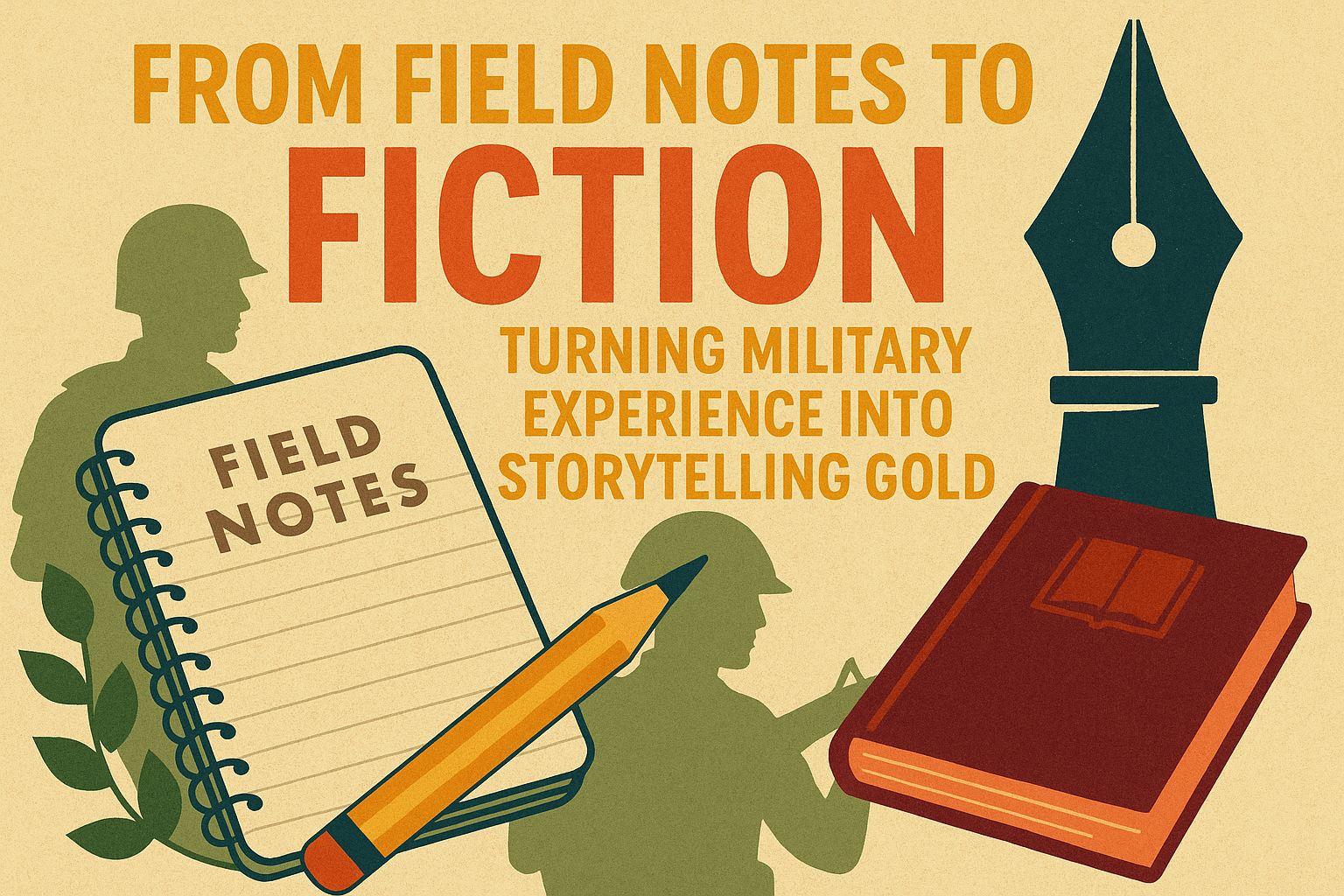Every veteran has a story. Some are heroic, others heartbreaking—but all are worth telling. Whether you’re writing a novel, a short story, or creative nonfiction, your military experience gives you a unique lens through which to explore universal themes like courage, sacrifice, and resilience. But how do you turn those raw memories into compelling prose?
This week, we’ll help you bridge the gap between real-life service and unforgettable storytelling.
1. Start with the Truth
Before crafting fiction, jot down true stories or events that stand out—combat missions, boot camp memories, emotional reunions, or even humorous mishaps. These are your "field notes." Authentic details provide emotional weight and credibility, even if you later fictionalize them.
💡 Tip: Carry a pocket journal or use your phone to capture memory sparks when they come.
2. Identify the Emotional Core
What emotion drove the moment? Fear? Brotherhood? Grief? Focus on that feeling and build the story around it. The military is full of emotion hidden beneath professionalism—and that tension makes for powerful drama.
3. Create Composite Characters
You don’t have to name names. Combine elements of different real people into fictional characters. This allows freedom and protects privacy while preserving authenticity.
🎖️ Example: A hard-nosed drill sergeant who secretly writes poetry can be a memorable character drawn from multiple real-life inspirations.
4. Build a Narrative Arc
True stories don’t always follow a satisfying structure. Your job as a storyteller is to shape events into a clear beginning, middle, and end. Even loosely connected vignettes need momentum.
📘 Read: Tim O’Brien’s The Things They Carried to see how memoir and fiction blend into thematic storytelling.
5. Use All Five Senses
Let readers feel the weight of the rucksack, hear the rattle of the Humvee, smell the diesel fumes. Specific, concrete details bring your world to life.
6. Decide: Fiction or Nonfiction?
Creative Nonfiction: Stick to true events but write them like a novel—with scene, dialogue, and description.
Fiction: Let your imagination run, using real events as a jumping-off point.
Both have value. Choose what feels truest to your voice and your mission.
7. Join a Community
You're not alone. Many MWSA members have made this journey from service member to storyteller. Our Beta Reader Program and award-winning authors can help you hone your craft and find your audience.
Final Word
Your service was unique. Your story should be, too. Writing can heal, inspire, and preserve a legacy. So dust off those field notes—and start turning them into storytelling gold.

